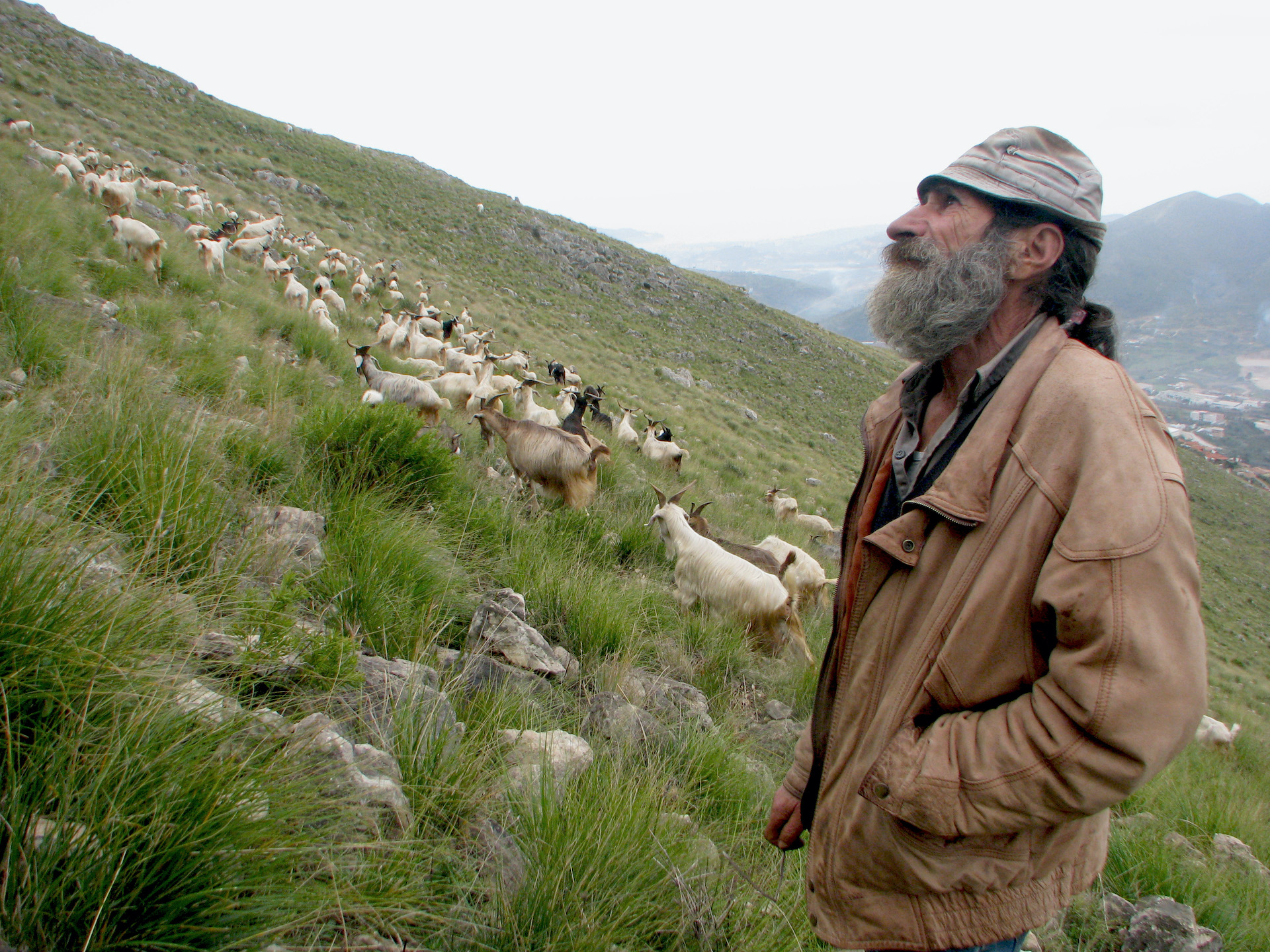
Biocultural Diversity, Resilience and Transformation of Extensive Livestock Systems in the Aurunci Mountains and Ciociaria (Central Italy)
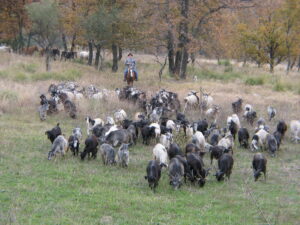
Recognition of the importance of pastoralists’ knowledge in European and Mediterranean countries has grown steadily in recent years. Maintaining pastoralism is, in fact, crucial for achieving the EU’s objectives on environment, climate and biodiversity protection within the ‘EU Green Deal’. However, despite all progress made at the European and international advocacy levels, the stories and the constraints of local pastoralists are not sufficiently heard and, all too often, the provision of ecosystem services by rangelands, and their role in securing sustainable livelihoods have been overlooked. This research addresses an urgent need to ensure an effective feedback mechanism and better synergies amongst all actors advocating in favour of extensive livestock systems, so to reduce the power imbalances between pastoralists and decision makers.
Background
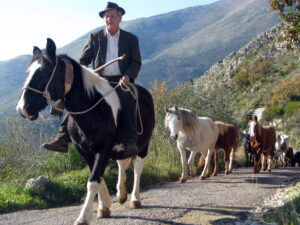 It is now well known that local pastoralists possess a wealth of knowledge about the natural environment and ecological processes. In the context of this project, it is anticipated, therefore, that such knowledge – presented in the form of spoken stories and audio-visual recordings – might have the potential of supporting both legal and ecological arguments for local people to take a leading role in the sustainable management of grazing lands, in the selection of local animal breeds, as well as in relation to a wide set of socio-economic issues. Selected video-clips will be then posted and made accessible through a dedicated web-platform which pastoralists themselves will be able to use for several purposes (e.g. sharing memories of the past, retrieving information, knowledge revitalization and promoting a lively debate on issues of common interest).
It is now well known that local pastoralists possess a wealth of knowledge about the natural environment and ecological processes. In the context of this project, it is anticipated, therefore, that such knowledge – presented in the form of spoken stories and audio-visual recordings – might have the potential of supporting both legal and ecological arguments for local people to take a leading role in the sustainable management of grazing lands, in the selection of local animal breeds, as well as in relation to a wide set of socio-economic issues. Selected video-clips will be then posted and made accessible through a dedicated web-platform which pastoralists themselves will be able to use for several purposes (e.g. sharing memories of the past, retrieving information, knowledge revitalization and promoting a lively debate on issues of common interest).
Methods
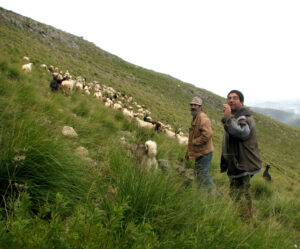 The research is based on the premises that transmission of traditional knowledge on animal breeding, and ethno-environmental knowledge in general, cannot be fully understood unless the linkage between production, processing and marketing is fully taken into account. In this respect, the research applies a holistic approach in order to assess multiple topics such as the relationship between livestock mobility and biocultural diversity, as well the connection between sustainable grazing and the dynamics of pasture vegetation, particularly in the context of fires’ prevention and global warming.
The research is based on the premises that transmission of traditional knowledge on animal breeding, and ethno-environmental knowledge in general, cannot be fully understood unless the linkage between production, processing and marketing is fully taken into account. In this respect, the research applies a holistic approach in order to assess multiple topics such as the relationship between livestock mobility and biocultural diversity, as well the connection between sustainable grazing and the dynamics of pasture vegetation, particularly in the context of fires’ prevention and global warming.
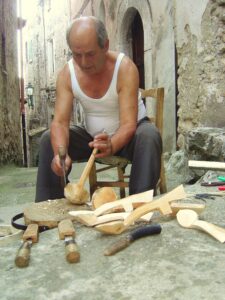 Emphasis will also be placed on social innovation and innovative governance of local agro-pastoral systems and on the dynamics of inter-generational change and knowledge transmission from both a diachronic and synchronic perspective. The impact of local and EU policies on rangeland governance and the identification of new economic strategies to deal with the COVID crisis will also be assessed. Moreover, the project aims at understanding the trade-offs between local people’s needs and nature protection while assessing ‘best conservation practices’ for the region, with a particular emphasis on the coexistence of livestock and wild predators.
Emphasis will also be placed on social innovation and innovative governance of local agro-pastoral systems and on the dynamics of inter-generational change and knowledge transmission from both a diachronic and synchronic perspective. The impact of local and EU policies on rangeland governance and the identification of new economic strategies to deal with the COVID crisis will also be assessed. Moreover, the project aims at understanding the trade-offs between local people’s needs and nature protection while assessing ‘best conservation practices’ for the region, with a particular emphasis on the coexistence of livestock and wild predators.
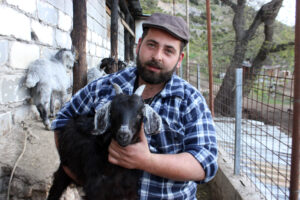 From a research perspective, a number of key questions become of concern: to what extent can local pastoralists pursue their production and mobility patterns while responding to the needs of an increasingly globalized market? What are the contributions of pastoralism to achieving the EU Green Deal? Is pastoralists’ engagement with PAC policies giving rise to new conceptualizations of their relationship with pasturelands and domestic animals? How, then, do pastoralists change their breeding goals in order to face new economic and political contingencies? To what an extent can national and international legal frameworks be improved so to better recognize the work of traditional ‘breed savers’? How can niche-markets be established and made attractive to encouraging the consumption of local animal products? What can we learn from already established in-situ approaches to safeguard local breeds, and how can we spread the diffusion of these ‘best practices’?
From a research perspective, a number of key questions become of concern: to what extent can local pastoralists pursue their production and mobility patterns while responding to the needs of an increasingly globalized market? What are the contributions of pastoralism to achieving the EU Green Deal? Is pastoralists’ engagement with PAC policies giving rise to new conceptualizations of their relationship with pasturelands and domestic animals? How, then, do pastoralists change their breeding goals in order to face new economic and political contingencies? To what an extent can national and international legal frameworks be improved so to better recognize the work of traditional ‘breed savers’? How can niche-markets be established and made attractive to encouraging the consumption of local animal products? What can we learn from already established in-situ approaches to safeguard local breeds, and how can we spread the diffusion of these ‘best practices’?
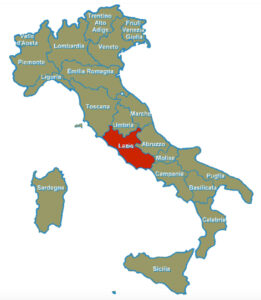 Although the project’s mission is global, this will be tested through place-based work limited to two areas of Italy’s Southern Lazio Region (Aurunci and Ciociaria) where pastoralism is facing critical challenges. The limited geographical scope of this project, however, will not be an impediment to the production of results and lessons-learned applicable to the wider Mediterranean context. Therefore, various forms of collaboration will also be established with national and European networks advocating for extensive livestock systems, so to triangulate pastoralists’ voices from Aurunci and Ciociaria with those of livestock herders from other regions.
Although the project’s mission is global, this will be tested through place-based work limited to two areas of Italy’s Southern Lazio Region (Aurunci and Ciociaria) where pastoralism is facing critical challenges. The limited geographical scope of this project, however, will not be an impediment to the production of results and lessons-learned applicable to the wider Mediterranean context. Therefore, various forms of collaboration will also be established with national and European networks advocating for extensive livestock systems, so to triangulate pastoralists’ voices from Aurunci and Ciociaria with those of livestock herders from other regions.
Outcomes
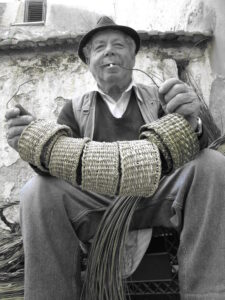 At the local level, the following project outcomes might be anticipated: a) increased pastoralists’ preparedness to express their visions and priorities; b) improved linkages and coordination between pastoralists and their advocating organizations; c) broadened understanding on the part of local authorities about the vital role played by ‘pastoralists’ in sustainable food-production and rangelands’ management.
At the local level, the following project outcomes might be anticipated: a) increased pastoralists’ preparedness to express their visions and priorities; b) improved linkages and coordination between pastoralists and their advocating organizations; c) broadened understanding on the part of local authorities about the vital role played by ‘pastoralists’ in sustainable food-production and rangelands’ management.
The project’s principal investigator is Dr. Dario Novellino who, at various stages, will collaborate with students and researchers affiliated with the School of Anthropology and Conservation at the University of Kent. The proposed methodology will be grounded on ethnobiology methodologies, as well as on those pioneering anthropological approaches aiming at communicating human experience and knowledge through visual and sensory means and by combining different representational forms.
Outputs
*NEW 2022: Goats and Pastoralists of the Aurunci Mountains and Ciociare (Central Italy): Photographic exhibition in the Museo Virtual Ecologia Humana: English Version here
Days of the Wolf, a film about the impact of large carnivores on livestock in the Aurunci Mountains and Ciociaria. Trailer here
*NEW: Novellino, D. 2021. Conocimiento Etnocientífico, Iconografía Antigua y Evolución Histórica de Algunas Tipología de Cabras en Riesgo de Erosión Genética (Lazio Meridional – Italia Central). El Pajar (Cuaderno de Etnografía Canaria), n.35, Dicembre 2021. In Spanish: Novellino 2021 Goat classification
“There are substantial differences between pastoralists’ ethnoscientific knowledge and the understanding of ARSIAL’s technicians about the classification of goat types in Central Italy (Aurunci and Ciociaria). Field research and a preliminary assessment of ancient iconography suggest that the ‘fragmentation’ of the local type of goats into ‘distinct’ breeds raises considerable problems from both a historical and anthropological perspective.”
For more information, contact Dario at Pastoralistsvoices.cbcdkent@gmail.com